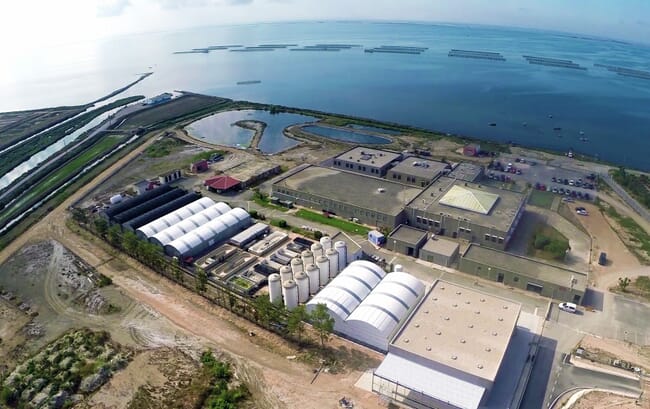
The centre will largely focus on the farming of low trophic species such as macroalgae, sea urchins, bivalves and holothurians
The centre is the result of the collaboration between the General Fisheries Commission for the Mediterranean (GFCM) of the Food and Agriculture Organization of the United Nations (FAO) and the Generalitat de Catalunya, Departament d’Acció Climàtica, Alimentació i Agenda Rural (DACC), with the support and infrastructures provided by the Institute of Agrifood Research and Technology (IRTA).
Restorative aquaculture practices can positively affect ecosystems services, offering ecological benefits, creating opportunities for local communities and addressing climate change through adaptation and mitigation strategies. The Mediterranean Restorative Aquaculture Centre aims to enable innovation and capacity building relating to the farming of species such as macroalgae, sea urchins, bivalves and holothurians, as well as on integrated multi-trophic aquaculture systems and adaptation to climate change.
Furthermore, this initiative will facilitate sustainable aquaculture development among producers and interested companies by fostering the exchange of technical guidance, expertise, and experiences among stakeholders in the Mediterranean region. It will contribute to developing knowledge and capacity for restorative aquaculture and promoting innovation and the ecosystem services of the sector among relevant stakeholders.
“We are honoured to host the Mediterranean Restorative Aquaculture Centre, given the commitment of the Generalitat de Catalunya to promote the sustainable development of aquaculture and the strengthening of ecosystem services in the Mediterranean”, said DACC's Sergi Tudela.
“The opening of Mediterranean Restorative Aquaculture Centre as an innovation and capacity-building centre is a very important milestone for our region. Within the framework of the GFCM 2030 Strategy, it aims at increasing and sharing knowledge on aquaculture resilience in the face of climate change,” added Miguel Bernal, GFCM executive secretary.
“For our institution, the centre will provide an opportunity to create a bridge between scientists and companies in both shores of the Mediterranean Sea”, said Josep Usall, general manager of IRTA.
Restorative aquaculture aligns with the Blue Transformation vision of FAO, which emphasizes the potential for intensifying and expanding aquaculture production while also generating positive impacts for both the environment and society. In 2023, the GFCM adopted a resolution on climate-resilient aquaculture, which urges the countries of the Mediterranean and the Black Sea to take action towards the development of a regional climate adaption plan for aquaculture.




